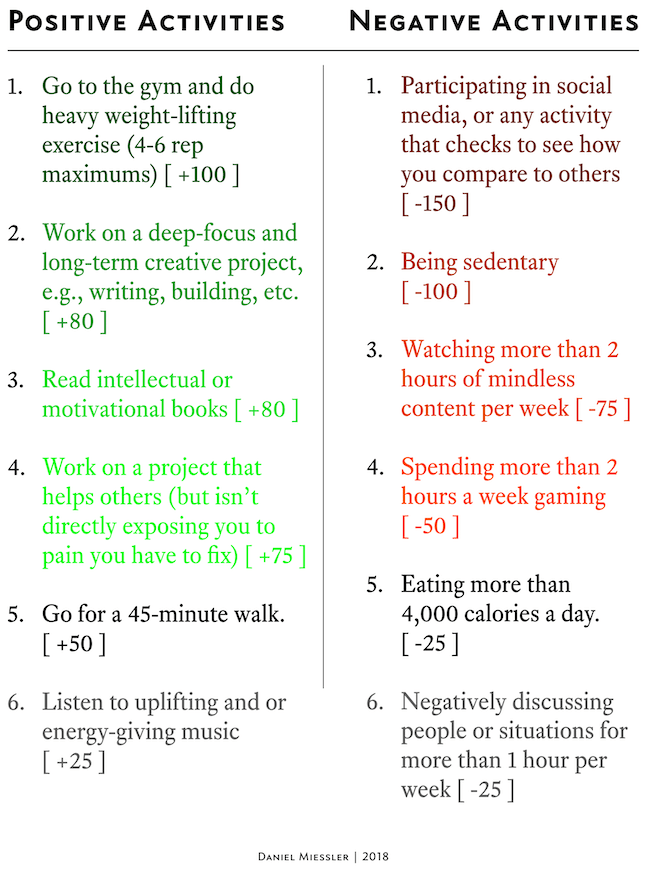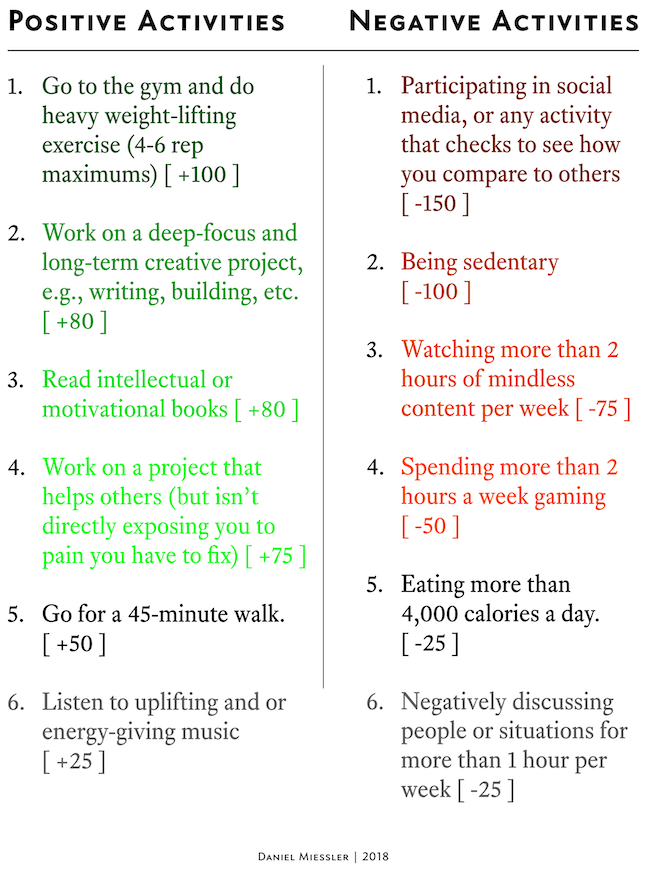How to Talk to AI
The real skill is clear thinking, not prompting or context

I have been drawn to questions of happiness and fulfillment for much of my adult life. I’m not sure the reason for that, but I think it’s a combination of some things in my family history, it being an extremely hard problem, and the fact that so many people I know are deeply unhappy.
The suicide rate in the United States is up over 30% since 1999.
When I hear a friend or associate talking about how sad or empty they feel, I immediately jump to thinking about assessment and remediation—whether or not I share my thoughts with them at the time. I usually just spend a long while listening because I’m not sure how and when to give the advice that helps me.
But for myself, I’ve now come to trust my own diagnostics and the behaviors that I use to control my own mood, and I wanted to share them here in case they can be of use to someone else. Essentially, the depressed people in my life are all engaging in identical positive and negative behaviors.
My primary observation is that unhappy people seem to be largely doing—and not doing—the same exact things.
And it’s not just that people who I hear about being depressed seem to be doing the same things—it’s that these are also the same activities I find myself doing when I’m not happy. So there seem to be clear, predictive activities that apply to many people, which I found both fascinating and useful.
Once I figured that out, I built this methodology to measure and adjust my own happiness and efficiency. The activities are listed in the table above, but in general most depressed people I know share these characteristics:
A number of recent studies have shown that weight-lifting relieves depression very quickly.
They’re not physically active.
They consume extraordinary amounts of social media, video games, and/or television.
If they’re on social media like Facebook and Instagram for multiple hours per day, it’s often to compare how happy other couples and celebrities are compared to their life.
If they’re in a high-status profession, they’re often comparing their popularity to that of other people in the field, and obsessing over why people don’t like them or respect them.
Why you should Beware of Alternate Meaning Loops
If they’re into video games, they’ve basically replaced their life meaning loops with alternative meaning loops, which makes the regular world a sad place to escape from.
They’re not working on any long-term positive projects of their own.
So here’s the prescriptive part. This is what I do when I don’t feel as motivated about my projects, don’t feel energetic, or feel any sort of unexplainable unhappiness.
I used to think I just wasn’t happy at that moment, and I would just let it pass. But now I quickly rank myself on all the activities that I know for a fact make me feel good or bad.
Now, as soon as I feel even a moderate disturbance in the force, I ask myself:
Have I played table tennis or worked out in the last few days?
Have I been on social media for too long? (too much external focus)
Have I been reading too much news (stuck on Reddit or Feedly)
Have I consumed any high-quality ideas lately (not enough reading and thinking)
Have I been listening to music?
Basically 100% of the time, I instantly recognize that I’ve either been too busy to exercise, to read, or I’ve been spending too much time looking at what other people were doing instead of working on my own projects.
And when I calculate my scores using my methodology I end up in the negative hundreds—or even over a thousand.
When this happens immediately stop consuming media, I get in the car, put on an audiobook, and I drive somewhere to play table tennis or lift weights. I feel better within minutes of doing this, and over the course of multiple days I reach my creative, temperament, and output peak, which is basically a sustained and gentle euphoria.
Predictably. Every…Single…Time.
Get a weekly breakdown of what's happening in security and tech—and why it matters.
What strikes me as so profound about this is not that having a low score can sometimes make some people sad—it’s that if you have a low score you’re almost guaranteed to be depressed.
And then weeks or months later, when life gets in the way, or Reddit or Twitter call to me too much, and I get sucked in…I stop working out. I stop exercising. I stop walking. I go for too long without reading and thinking (and therefore writing), and I slip back into The State of Blah.
When that happens, I now know to simply do the following:
Stop
Stop doing the things on the right
Start doing the things on the left
In other words, it’s basically impossible to be happy if you are scoring low on this calculator, so you shouldn’t be surprised if that’s the case. You should expect it.

I am not a doctor, and I am not Tony Robbins. This is just a practical system that I built to solve the problem for myself.
If you are not happy, or frequently feel The Blah, look at these activities and calculate your scores for the last week.
It is my prediction that if you are not feeling happy, your score will come up in the negative hundreds for the last 7 days, and that if you are feeling good your score will come up in the positive hundreds for the last 7 days.
If you’re in the negative hundreds, you’re almost guaranteed to feel depressed, so don’t feel bad about that. We know the reason!
Make the adjustments by avoiding the stuff on the right, and doing the stuff on the left.
I hope you try the system, and that it helps you as much as it’s helped me.
Take care!
I have not done extensive study on each of these activities and their efficacy for large groups of people. This entire post is based on being very close to people who are depressed for multiple decades of my life, seeing what works for me when I feel less positive, and absorbing many, many books on happiness and fulfillment. Do not take that as authority, because I don’t think it’s possible to have such a thing in this matter. This is just my best attempt to help people in this situation.
Another thing that strikes me about this is that these seem to be the activities that Americans as a whole are doing (and not doing) as well. That obviously requires a lot of study to say definitively, but I would not be at all surprised if these activities were shown to be similarly helpful or harmful in the larger population.
I am fully aware that this type of system only works for people with certain (hopefully the most common) types of depression, and not for people who have serious mental health or biologically caused situations that I have no expertise in, and which science is still figuring things out. I am absolutely not claiming that doing this will solve situation x, y, or z that you know of where there was a severe imbalance of some sort. I’m simply claiming that there are many situations that may look like that which could actually be treated best by doing these things.
My advice is to talk to a solid mental health professional if you are dealing with depression, and to ask them what they think of these activities if you have any doubts about them. I would guess that they’d recommend you do whatever they’re telling you, and that you could/should do these things as well because they couldn’t hurt. Or perhaps they’ll like the approach and will endorse it. But the point is that you should ask a professional if you have any concerns.